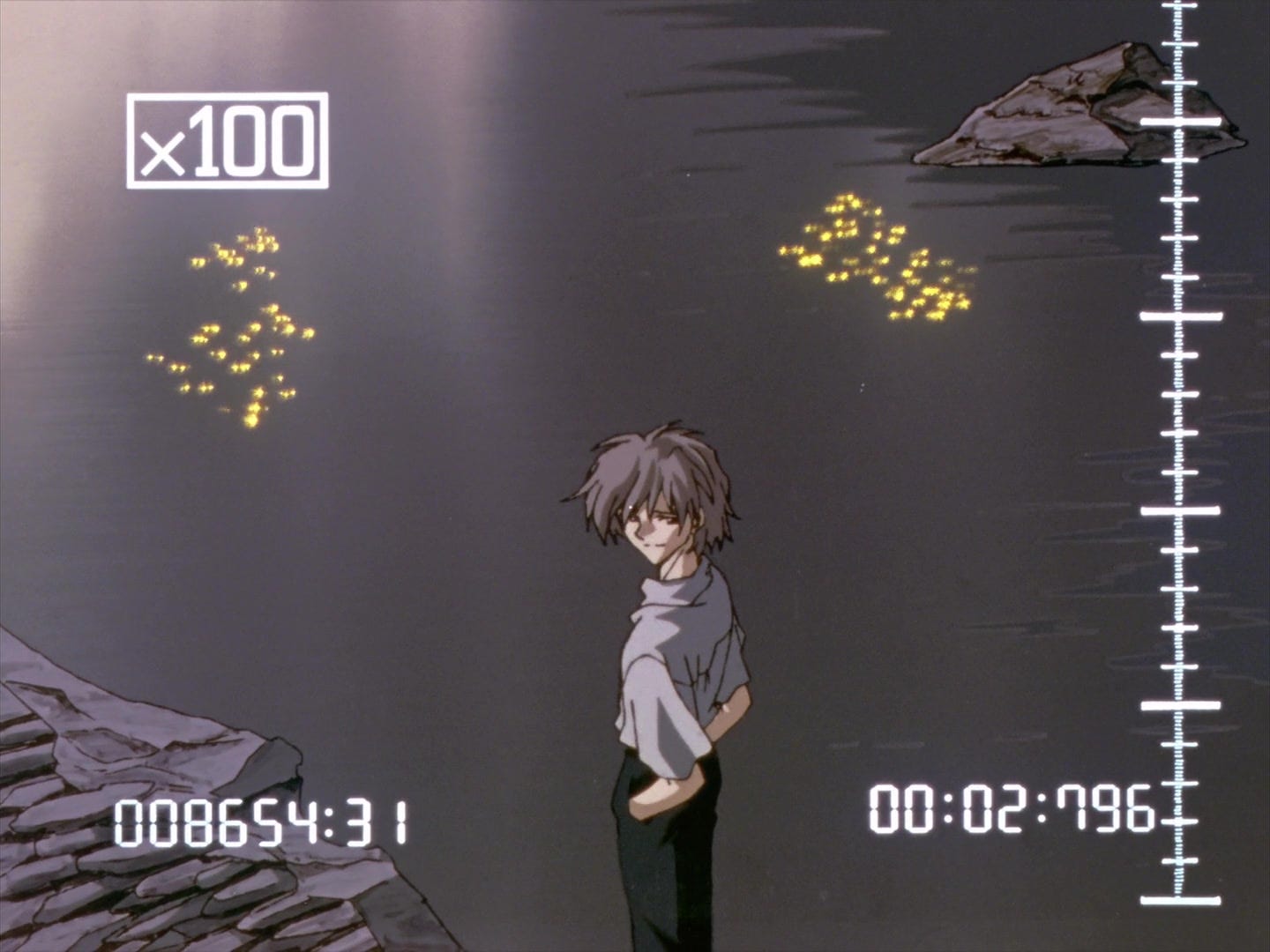it means i like you
neon genesis evangelion (episode twenty-four, "the beginning and the end, or 'knockin' on heaven's door'")
Long ago, before I had ever watched Evangelion, I was under the impression it was a turgid, pretentious, Freudian slog of a show, with obsessive fans who made mountains out of nothing. In particular, I was aware that there was a character named Kaworu who was only in one episode but with whom people were, nonetheless, completely obsessed. Kaworu represented to me everything that seemed ridiculous about this cartoon that I eventually decided to watch so I could hate it more competently.
Obviously, that’s not what happened.
In a odd sense, though, I was sort of right to fixate on Kaworu as representing something important about the show. While some of what is to come in the next couple episodes is (probably) due to the show running out of money (and/or Hideaki Anno having a nervous breakdown)… Kaworu is different. He was always meant to be this way. Even in the show’s original plans, Kaworu was always in the show and as far as I can tell he was only ever in the one episode. Originally, he…


